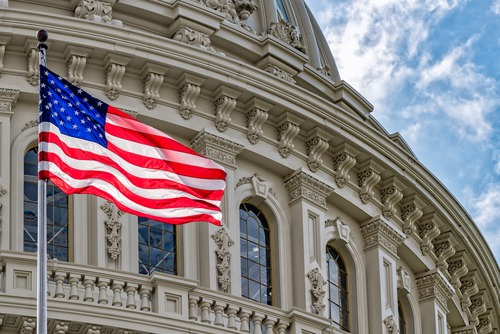
Despite a rocky approval process this year, last week both the U.S. House and Senate passed the National Defense Authorization Act for Fiscal Year 2024, teeing it up for signature by President Joe Biden.
It was a rebuke of last minute efforts by the far right to scuttle the bill, as Democrats and Republicans joined ranks in both chambers to secure both funding for the Armed Forces and even a pay raise for service members.
“I am pleased that the Senate has come together to once again pass a strong, bipartisan defense bill,” U.S. Sen. Jack Reed (D-RI), chair of the Armed Services Committee, said. “This is a dangerous moment in the world, and the NDAA makes critical progress toward meeting the threats we face. This year’s bill strengthens our military posture and alliances in the Indo-Pacific, helping to secure our interests against China’s expanding ambitions. It supports Ukraine in its heroic fight against Russia, and it enhances our alliance with Israel. The bill will reinvigorate our industrial base and provide our military services with the cutting-edge platforms and technologies they need to keep Americans safe.”
Ukraine and domestic issues like the border had been major sticking points throughout the bill’s approval process, but ultimately, despite procedural attempts to delay the bill by some, it passed an $883.7 billion fund for national defense. Despite concerns that Ukraine would be cut out over squabbles closer to home, even it managed to secure another $300 million for 2024, and to get the Ukraine Security Assistance Initiative extended through fiscal year 2027.
At large, $841.4 billion will go to the Department of Defense (DoD), $32.4 billion will go to national security programs at the Department of Energy (DOE) and another $438 million was earmarked for defense-related activities.
In the process, military service members and the DoD civilian workforce won a 5.2 percent pay raise – the largest in decades. Investments to the Pacific Deterrence Initiative were increased and the Indo-Pacific Campaigning Initiative was established to further confront Chinese ambitions. Investments were also authorized for recruiting, modernization, industry, cybersecurity and more.
“Enemies of freedom are growing more dangerous and capable by the day,” U.S. Sen. Roger Wicker (R-MS) said after the NDAA cleared the Senate in an 87-13 vote. “Our bill should signal to China, Russia, and others that we will not accept a world where America does not have the best fighting force. While I would have preferred to send the President a substantially larger proposed investment in our industrial base, he now should approve the monumental investments Congress intends to make in our servicemembers, warships, submarines, aircraft, and technology.”
Many of the social policies that had been sticking points for Republicans early on were ultimately dropped for the final version of the bill. Among the contentious items that passed, though, was a short-term extension of the surveillance program FISA, which permits the U.S. government to spy on non-Americans’ communications outside the country as a way to catch supposed terrorists and spies. It was first authorized in 2008 and passed this time despite some bipartisan opposition to its wide-reaching capabilities.




